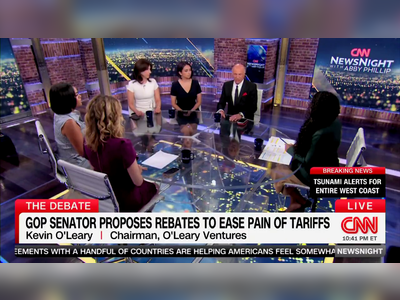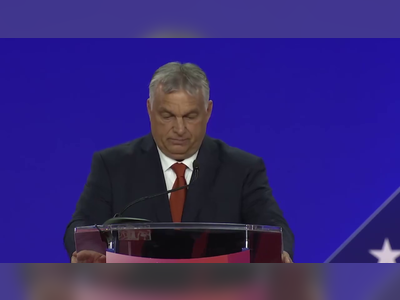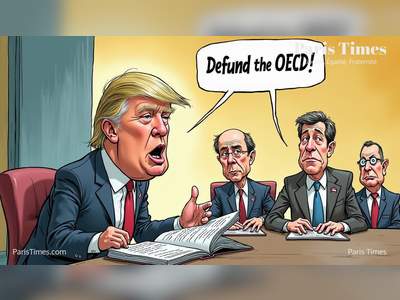Italy's Economic Recovery Under Giorgia Meloni: A Comparative Analysis with France
Italy, under the leadership of Giorgia Meloni, displays significant economic progress, surpassing France in GDP per capita and reducing public deficit.
Italy has emerged from a prolonged economic slump to show remarkable recovery, particularly under the leadership of Prime Minister Giorgia Meloni, who assumed office in 2022. This shift positions Italy as a surprising contender in Europe's economic landscape amidst previous predictions of its decline.
Historically seen as the economic weak link in Southern Europe, Italy's transformation is exemplified by recent economic indicators.
The country's GDP per capita has now surpassed that of France, marking a 10% increase from five years ago when Italy's GDP was significantly lower.
This advancement is attributed to a consistent economic policy, a leaner state apparatus, and a revitalized middle class.
As of now, unemployment in Italy stands at 5.7%, the lowest in twenty years, while France's unemployment rate is recorded at 7.3%.
Despite modest growth, Italy's economic progress is notable compared to its European counterparts.
Inflation in Italy remains subdued, recorded at under 1%, which has led to an increase in purchasing power, a scarce phenomenon in Europe.
By 2025, Italy is projected to become the world's fourth-largest exporter, overtaking Japan, with a trade surplus of 2.5 billion euros, in stark contrast to France's deficit of over 8 billion euros.
These indicators have captured the attention of credit rating agencies, which are increasingly inclined to upgrade Italy's credit rating.
Notably, the Italian government has benefitted from substantial European Union financial support, receiving 71 billion euros since the onset of the COVID-19 pandemic.
This funding has been utilized to enhance Italy’s "superbonus" scheme and to support exports through tax reductions.
Further highlighting this economic rebound, Italy has seen its public deficit reduce by half within one year, from 7.2% of GDP to 3.4% in 2024. The government has set a goal to bring the deficit below the 3% threshold by 2026, implementing stringent cuts to public spending while managing opposition from various social movements.
On the taxation front, the Meloni administration has sought to relieve the fiscal burden on citizens while incentivizing economic activity.
Modifications to tax brackets have been introduced, lowering rates for incomes up to 28,000 euros to 23% and reducing social security contributions for earnings below 40,000 euros.
Corporate tax rates have been lowered by 4 percentage points, contingent on profits being reinvested into job creation.
Investment remains a cornerstone of Italy's recovery strategy, particularly through the National Recovery and Resilience Plan (PNRR).
This initiative encompasses nearly 200 billion euros from the EU's Next Generation EU program, dedicating funds to more than 230,000 projects aimed at enhancing infrastructure across diverse sectors, including transportation, green energy, and urban revitalization.
Additionally, Italy is diversifying its energy suppliers as part of a strategic move to reduce dependency on Russian gas, cultivating partnerships with countries such as Azerbaijan, Egypt, and Qatar, along with increasing investments in renewable energy sourced from Albania.
The management of public enterprises has also been prioritized, with strategic appointments to leadership positions in key state-owned companies like Eni and Leonardo, aimed at aligning these entities with national interests and improving their operational efficiency.
Internally, the Meloni government has maintained a rare level of institutional stability, remaining in power for thirty-two months, a notable duration in a country historically characterized by political volatility.
In comparison, France has experienced the appointment of four Prime Ministers within the same period.
This swift economic transformation in Italy prompts a reassessment of criticisms directed towards Meloni and her administration from international observers.
Recent interactions have indicated a softening stance among French politicians, with high-level acknowledgments of Meloni's leadership and initiatives, as the French government seeks to rediscover its industrial roots amid Italian economic strategies.
Historically seen as the economic weak link in Southern Europe, Italy's transformation is exemplified by recent economic indicators.
The country's GDP per capita has now surpassed that of France, marking a 10% increase from five years ago when Italy's GDP was significantly lower.
This advancement is attributed to a consistent economic policy, a leaner state apparatus, and a revitalized middle class.
As of now, unemployment in Italy stands at 5.7%, the lowest in twenty years, while France's unemployment rate is recorded at 7.3%.
Despite modest growth, Italy's economic progress is notable compared to its European counterparts.
Inflation in Italy remains subdued, recorded at under 1%, which has led to an increase in purchasing power, a scarce phenomenon in Europe.
By 2025, Italy is projected to become the world's fourth-largest exporter, overtaking Japan, with a trade surplus of 2.5 billion euros, in stark contrast to France's deficit of over 8 billion euros.
These indicators have captured the attention of credit rating agencies, which are increasingly inclined to upgrade Italy's credit rating.
Notably, the Italian government has benefitted from substantial European Union financial support, receiving 71 billion euros since the onset of the COVID-19 pandemic.
This funding has been utilized to enhance Italy’s "superbonus" scheme and to support exports through tax reductions.
Further highlighting this economic rebound, Italy has seen its public deficit reduce by half within one year, from 7.2% of GDP to 3.4% in 2024. The government has set a goal to bring the deficit below the 3% threshold by 2026, implementing stringent cuts to public spending while managing opposition from various social movements.
On the taxation front, the Meloni administration has sought to relieve the fiscal burden on citizens while incentivizing economic activity.
Modifications to tax brackets have been introduced, lowering rates for incomes up to 28,000 euros to 23% and reducing social security contributions for earnings below 40,000 euros.
Corporate tax rates have been lowered by 4 percentage points, contingent on profits being reinvested into job creation.
Investment remains a cornerstone of Italy's recovery strategy, particularly through the National Recovery and Resilience Plan (PNRR).
This initiative encompasses nearly 200 billion euros from the EU's Next Generation EU program, dedicating funds to more than 230,000 projects aimed at enhancing infrastructure across diverse sectors, including transportation, green energy, and urban revitalization.
Additionally, Italy is diversifying its energy suppliers as part of a strategic move to reduce dependency on Russian gas, cultivating partnerships with countries such as Azerbaijan, Egypt, and Qatar, along with increasing investments in renewable energy sourced from Albania.
The management of public enterprises has also been prioritized, with strategic appointments to leadership positions in key state-owned companies like Eni and Leonardo, aimed at aligning these entities with national interests and improving their operational efficiency.
Internally, the Meloni government has maintained a rare level of institutional stability, remaining in power for thirty-two months, a notable duration in a country historically characterized by political volatility.
In comparison, France has experienced the appointment of four Prime Ministers within the same period.
This swift economic transformation in Italy prompts a reassessment of criticisms directed towards Meloni and her administration from international observers.
Recent interactions have indicated a softening stance among French politicians, with high-level acknowledgments of Meloni's leadership and initiatives, as the French government seeks to rediscover its industrial roots amid Italian economic strategies.










